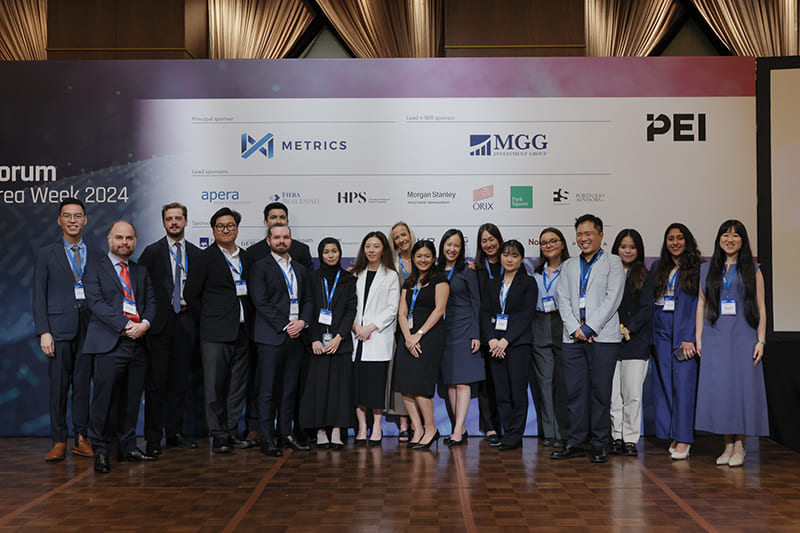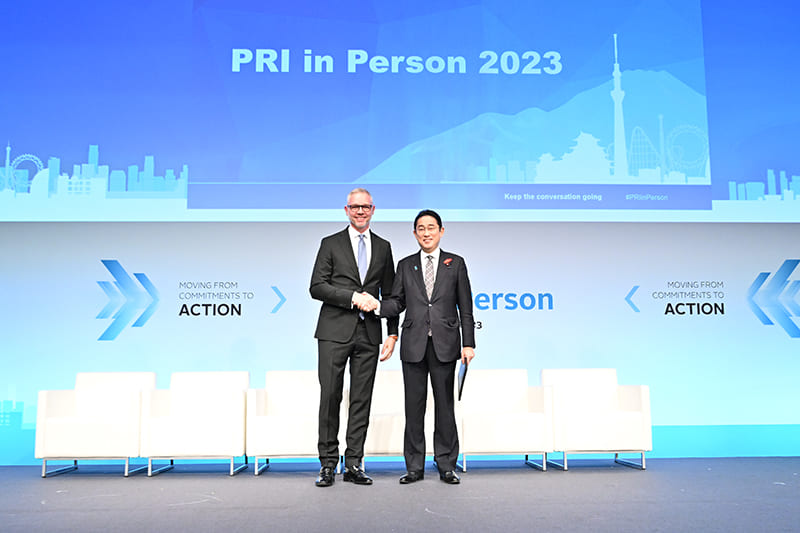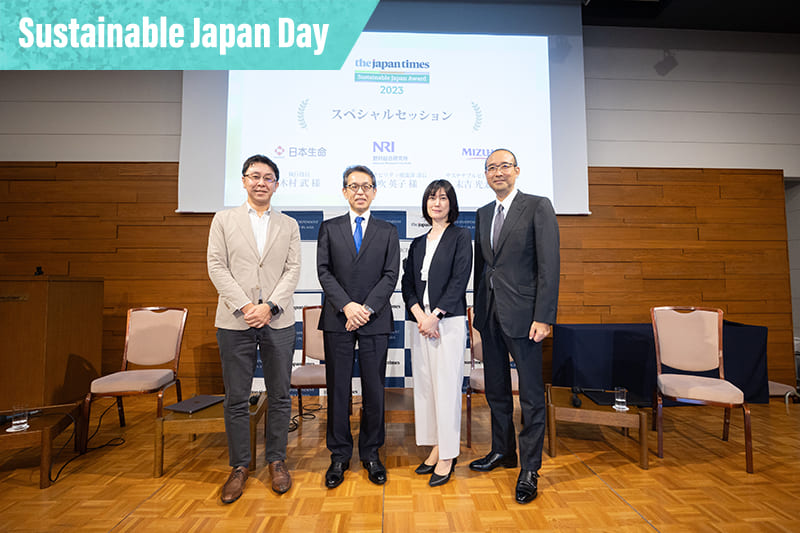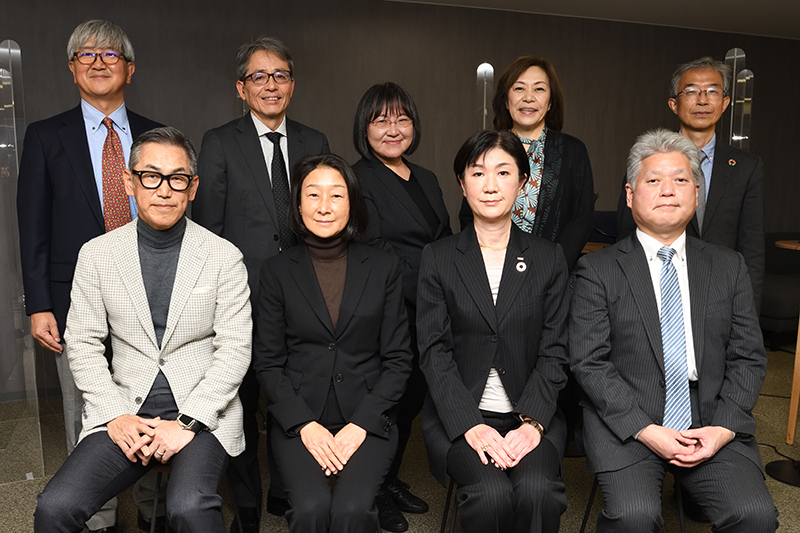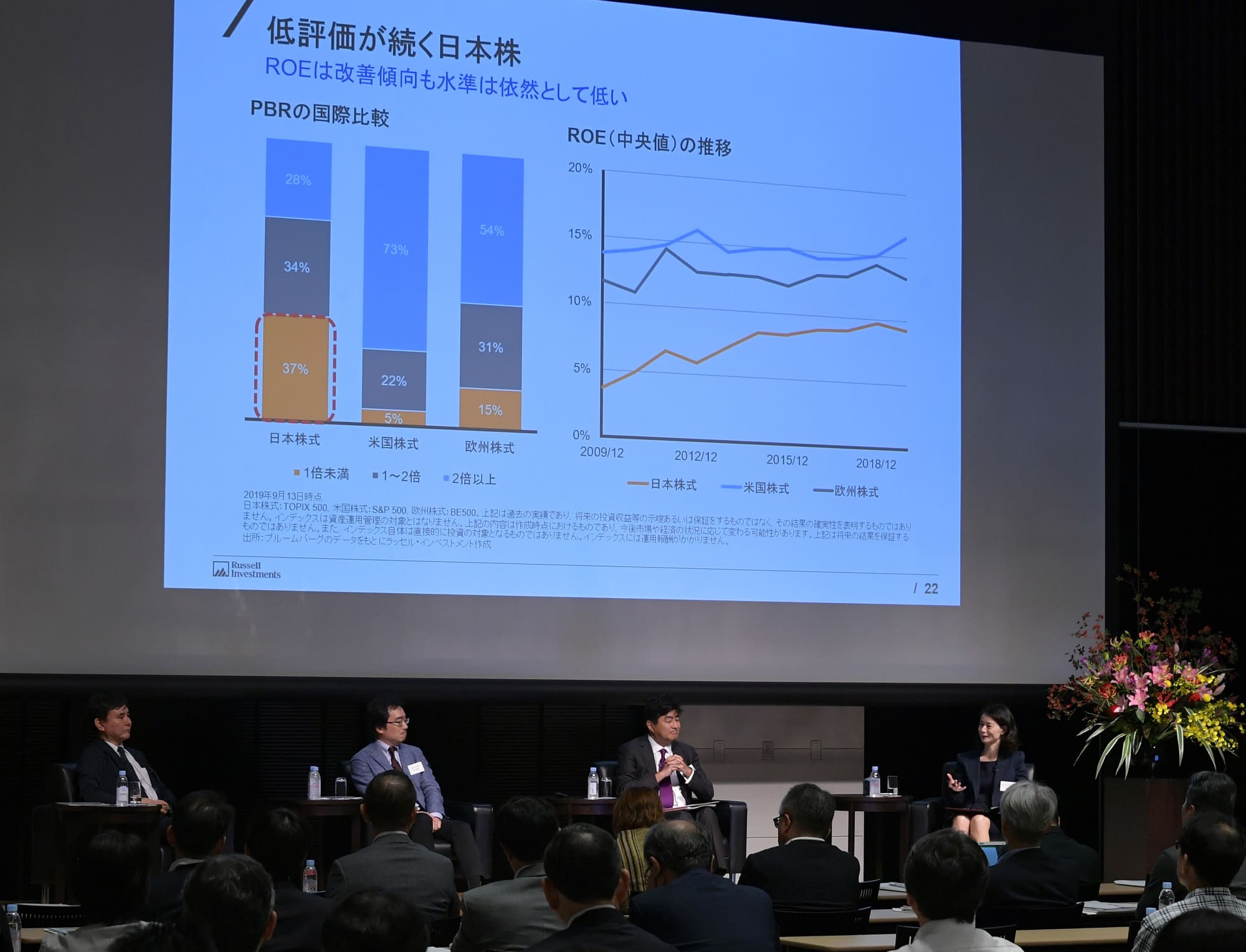June 16, 2023
Investors at RI Japan developing tools to gauge firms’ performance
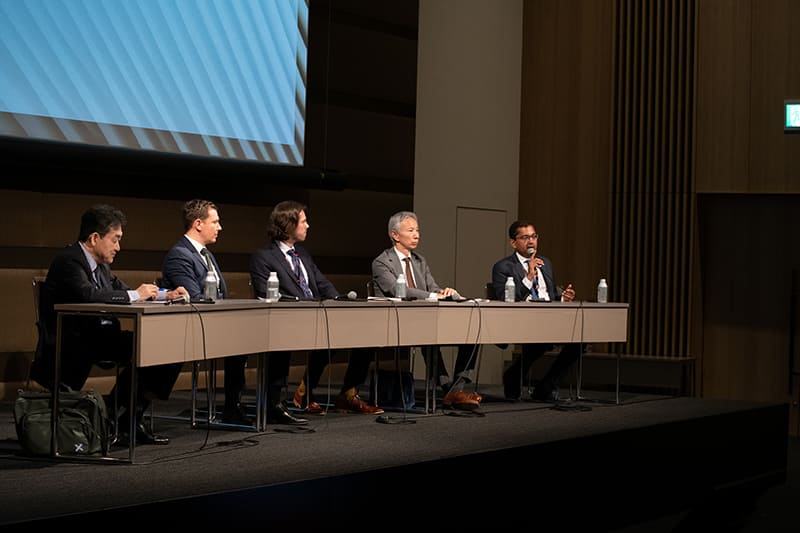
Impact investment has increasingly intrigued the financial world as a way to achieve returns at the same time as helping bring about solutions for the environment and society. But how do we measure its effectiveness, and can we trust it?
The last session of the Responsible Investor Japan 2023 conference shed a spotlight on this trend under the title “The Rise of Impact Investing as an Investment Strategy.”
Recent warning signs on environmental damage, workplace stress and inequality have prompted companies and financial institutions to acknowledge these realities and act on climate and social issues.
A sense of crisis is rapidly spreading in the investment world. Out of the $130 trillion of assets under management worldwide, those related to the environment, society and governance (ESG) currently account for 30%, or about $40 trillion, and impact investing — a type of ESG investing — stands at $1 trillion to $2 trillion globally and $8.7 billion in Japan, according to Takuro Kimura, the chief executive officer for G-Cubed Partners, which provides support to early-stage ventures in emerging markets, and the moderator for the session. “It sounds very small, but the good news is that it is growing fast,” Kimura told the audience at the start of the session.
GIIN (Global Impact Investing Network), the largest global community for impact investing, estimated worldwide impact investment assets at $1.164 trillion in a report published in 2022 — more than double the estimated $502 billion in its 2019 report. The network defines impact investments as those “made with the intention to generate positive, measurable social and environmental impact alongside a financial return.”
Despite this sharp growth, impact investing faces challenges, including a lack of coherent ways to gauge positive effects. This problem of methodology has often invited greenwashing and misguidance by investees, panelists said. In discussing that, two panelists presented examples of measurement. One of them is methodology introduced by the International Finance Corp. (IFC), a member of the World Bank Group that gives financial support to the private sector in developing countries. In 2019, the IFC set up its Operating Principles for Impact Management, requiring signatory institutions to follow the principles and disclose the outcome. Also, the IFC launched an impact-rating tool, Anticipated Impact Monitoring and Measurement (AIMM), in 2017 to assess the impact of investment projects. The framework enables the IFC to conduct qualitative analysis of projects, which is followed by quantitative measurement scored between 10 and 100. The IFC intends to have all projects score at least 35.
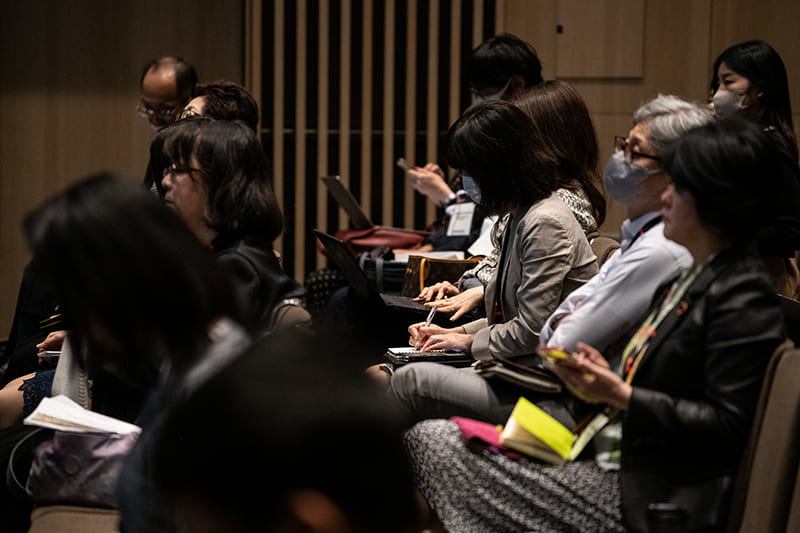
“We are advocating this measurement be utilized by investors, and hopefully we will make sure the volume of impact investing will be increased and have a decent share of the global assets under management,” Hiroshi Jinno, chief investment officer for IFC Tokyo, told the audience. Currently, there are more than 170 signatories to the IFC’s principles in 39 countries. Among the signatories are six institutions in Japan.
Another example of methodology is impact-weighted accounts (IWAs), a way for companies to quantify their positive and negative impacts on the environment and society and disclose them in their financial accounting. A framework released by an initiative led by Harvard Business School and others proposed in 2022 how corporate financial statements could be supplemented by monetized measures of impacts.
“It allows us to create really strong, clear buckets of impact that we can then compare effectively to financial performance in a way that’s understood and methodologically rigorous and open for discussion,” noted David Freiberg, the impact-weighted account adviser on climate change and sustainability services for the professional services organization EY Japan.
Other panelists discussed examples of how to analyze investees’ impacts when they make investments.
Philipp Mueller, the chief executive officer at BlueOrchard Finance, said it requires investees to first set their goals and specific key performance indicators (KPIs) so the Swiss-based global impact investor can understand what outcomes investees aim for. BlueOrchard then analyzes the KPIs and other corporate data by comparing them with those of companies of similar size.
Another impact investor, T. Rowe Price, uses “five dimensions of impact framework” on every potential stock before it makes an investment: the strategic goal of the impact; who experiences the outcome; the outcome’s scale, depth and duration; the corporation’s relative contribution; and the risk to people and the planet. The investor also utilizes a third-party impact measurement company to jointly conduct independent verification, said Hari Balkrishna, global equity impact portfolio manager at T. Rowe Price. The investment firm also takes company-specific approaches in its engagement activities with investees and conducts proxy voting to support its impact targets.
At the end of the session, panelists urged members of the audience to take steps to act as impact investors. “This is the time [when] investors, companies, borrowers and government regulators should get together to make sure everyone can be impact investors. If you don’t do it this year, you will be late for the train. So, you must be on the train for the impact investing,” Jinno of the IFC said.
Aiming to highlight issues related to sustainability, The Japan Times gave its support to this event by becoming a media sponsor.

